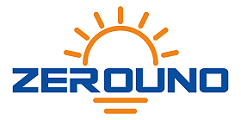Much news has been made of airlines' new and improved disinfecting routines—including fogging, or spraying a high-grade disinfectant, throughout the cabin and wiping down high-touch points—and how the coronavirus-induced changes will stick around after the pandemic ends. But few updates have come from hotels, many of whom are open, albeit with significantly fewer guests. Now, Marriott International has made the first move, announcing a new cleanliness plan that will roll out over the next few months across its more than 7,000 hotels, which include the Ritz, W, Westin, and Aloft brands.
“Safety for our guests and associates has always been a top priority for Marriott and today that discussion of safety is in the context of COVID-19,” said Ray Bennett, the chief global officer of global operations at Marriott International and the new head of the chain's global cleanliness council, in a press release. “We want our guests to know that we are doing everything we can to welcome them back to a safe and clean hotel environment when they start traveling again.”
The most striking update will be the introduction of electrostatic sprayers—the same machines used for fogging airplanes—to sanitize surfaces both inside hotel rooms and in public areas like the lobby and gym. The disinfecting machines (which look like a cross between a Nerf gun and a handheld steamer) rapidly spray a EPA-approved solution that clings to surfaces, offering the ability to sanitize large areas quickly, but is safe to breathe. Marriott hotels are also looking into using ultraviolet light technology "for sanitizing keys for guests and devices shared by associates," according to its press release. (The Westin Houston Medical Center is also using UV light in the form of two roaming robots, usually used in hospitals, to sanitize rooms and common areas—though this tactic is limited to the Houston franchise of the hotel for now.)
More immediately, guests will likely notice major changes in the lobby. To promote social distancing, hotels will be temporarily removing or rearranging lobby furniture and offering more hand sanitizer stations throughout. You may also start seeing clear partitions separating the concierge and check-in teams from guests at the front desk—though, like the UV lights, Marriott is still deciding if it'll go forward with this tactic. At the many Marriott hotels where it's available, mobile check-in and use of the hotels' apps for room service and other requests will be encouraged to limit face-to-face interaction.
As for the rooms themselves, surfaces are being more closely disinfected with hospital-grade supplies, and you'll find disinfecting wipes inside your room to use as you see fit.
Marriott is the first hotel company to release such an extensive cleaning plan—though other organizations are taking preventative measures to step up cleaning. In mid-March, Hilton announced it was increasing the frequency of cleaning procedures in "public areas (including lobbies, elevators, door handles, public bathrooms, etc.)" with hospital-grade disinfectant and was closely following WHO and CDC recommendations. In Singapore, hotels will be monitored to ensure they meet a seven-point checklist, like checking guest and employee temperatures and promoting social distancing, and be given a "SG Clean" stamp of approval to assuage guest concerns. It remains to be seen how many of these practices will remain once the pandemic subsides.
We're reporting on how COVID-19 impacts travel on a daily basis. Find all of our coronavirus coverage and travel resources here.

